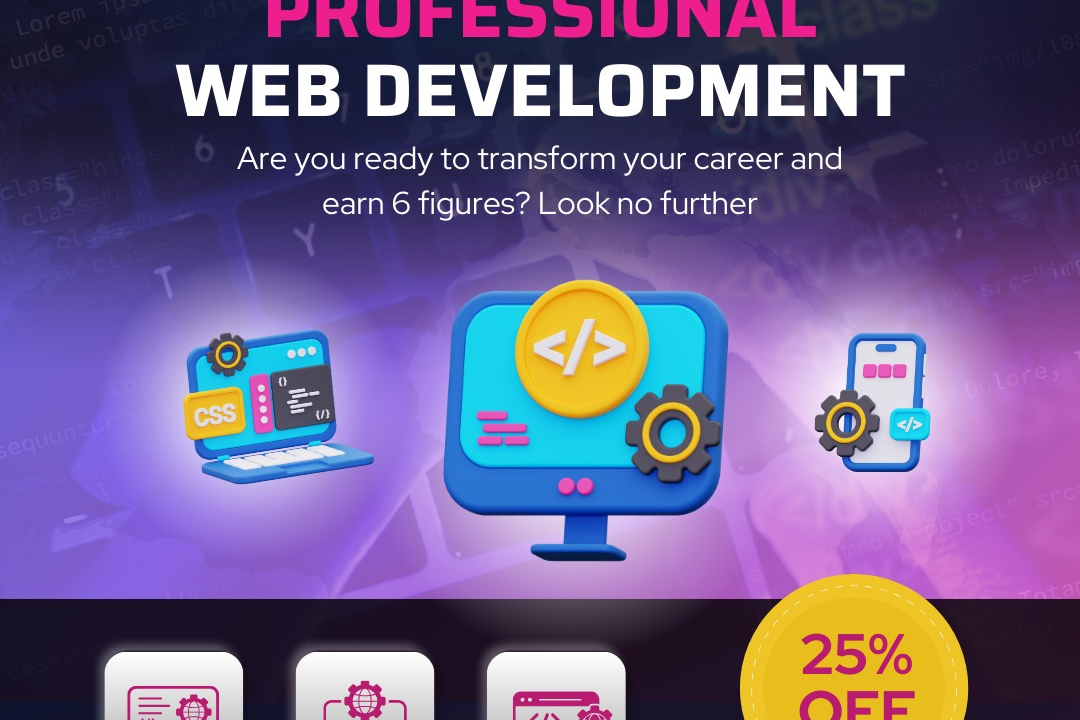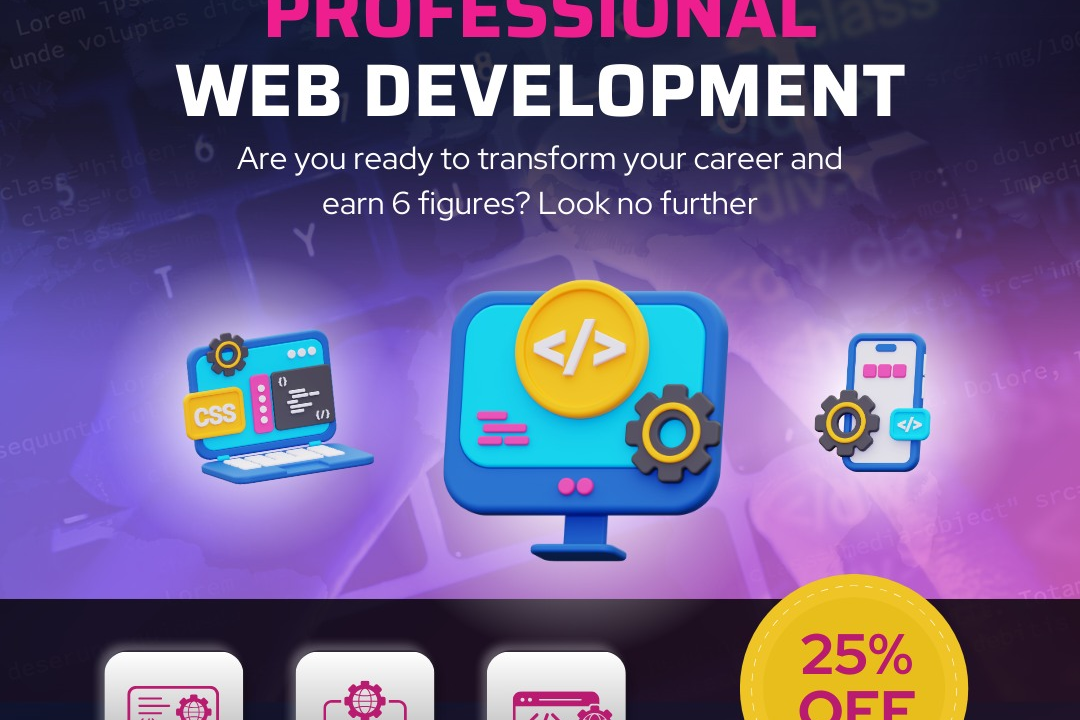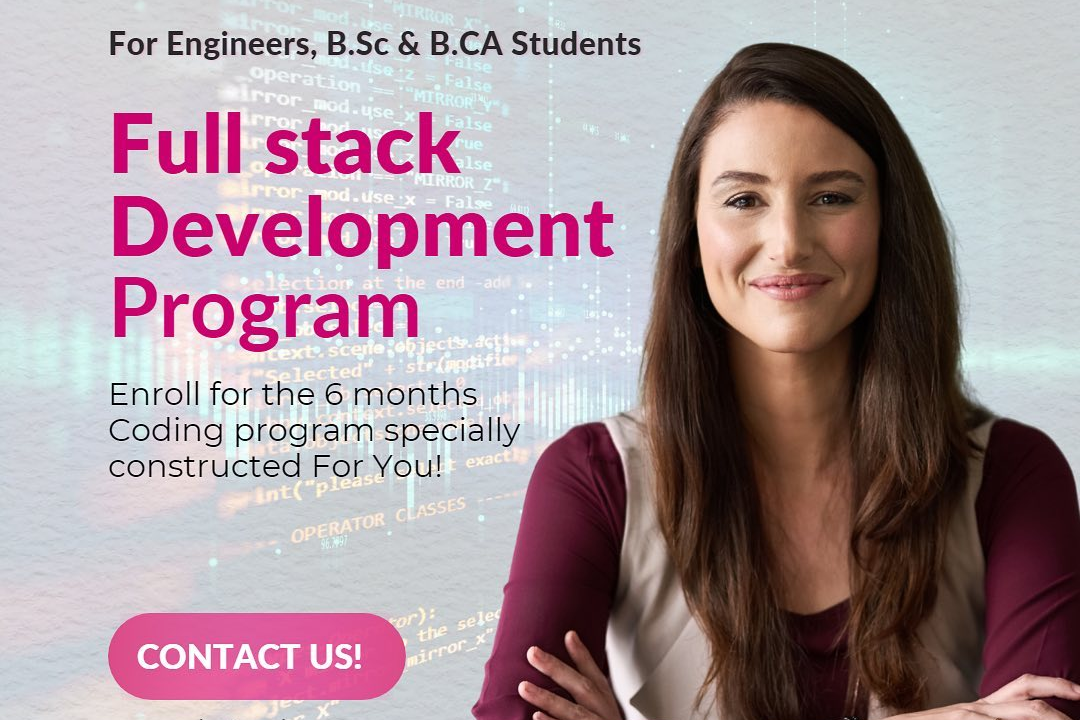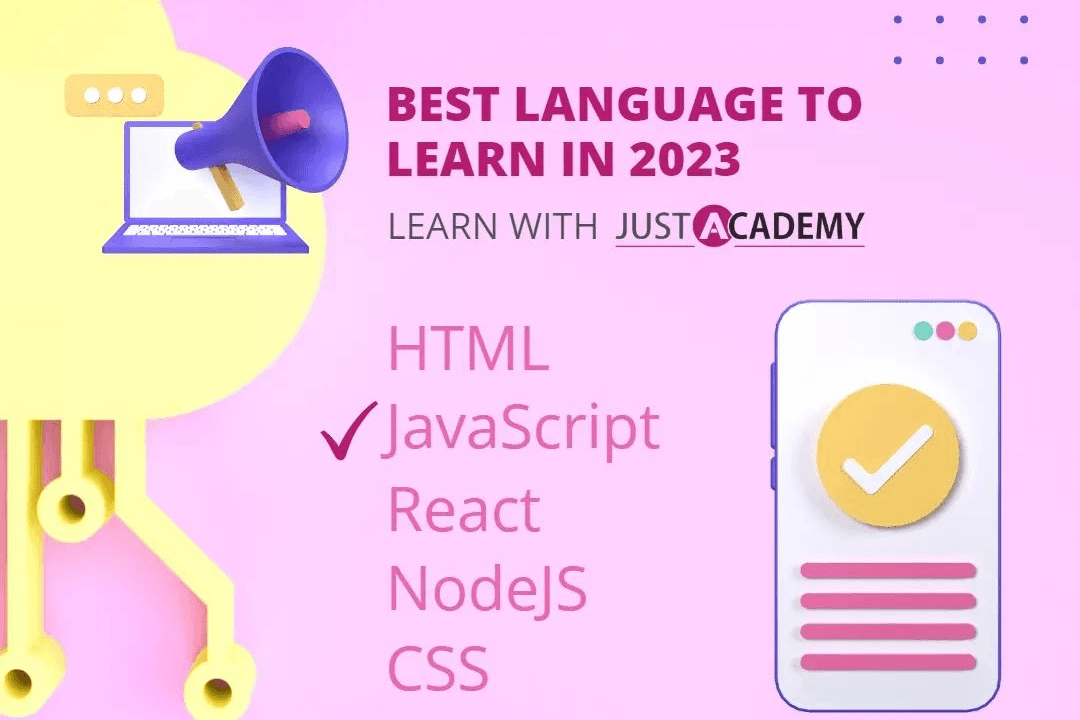Angular And Node Js Interview Questions
Angular and Node.js Interview Questions
Angular And Node Js Interview Questions
Angular and Node.js are essential technologies for modern web and mobile app development. Interviews involving these frameworks often focus on core concepts, such as Angular's component-based architecture and data binding, and Node.js's event-driven, non-blocking I/O model. Questions also explore practical aspects like dependency management, testing, and performance optimization. By understanding these technologies, candidates demonstrate their ability to create scalable, efficient, and user-friendly applications.
To Download Our Brochure: https://www.justacademy.co/download-brochure-for-free
Message us for more information: +91 9987184296
1 - Angular: What is the difference between a component and a directive?
A component is a reusable UI element with its own logic and template, while a directive modifies the behaviour or appearance of an existing element.
2) Angular: What is dependency injection?
Dependency injection is a design pattern that allows components to receive dependencies from external sources, making it easier to test and maintain code.
3) Angular: What is the difference between a service and a factory?
A service is a singleton object that is instantiated once and shared across the application, while a factory returns a new instance of an object each time it is invoked.
4) Node.js: What is event driven programming?
Event driven programming is a programming paradigm where the flow of the program is controlled by events, such as user input or network requests.
5) Node.js: What is a callback function?
A callback function is a function that is passed as an argument to another function, which calls the callback function when an event occurs.
6) Node.js: What is the difference between a synchronous and asynchronous function?
A synchronous function executes code sequentially, blocking the event loop, while an asynchronous function executes code concurrently, allowing the event loop to continue processing other tasks.
7) Node.js: What is the purpose of a middleware?
A middleware is a function that provides additional functionality between the request and response lifecycle of an HTTP request.
8) Node.js: What are RESTful APIs?
RESTful APIs are web services that follow the representational state transfer (REST) architectural style, which defines how data is represented and transferred between clients and servers.
9) Node.js: What is Express.js?
Express.js is a popular Node.js framework for building web applications and RESTful APIs.
10) Node.js: What is MongoDB?
MongoDB is a popular NoSQL database that stores data in a JSON like document format.
11 - Node.js: What is the purpose of a database schema?
A database schema defines the structure and relationships between data stored in a database.
12) Node.js: What is a transaction?
A transaction is a unit of work that represents a change to the database. It ensures that the changes are made consistently and atomically, or not at all.
13) Angular: What is the ngModel directive used for?
The ngModel directive binds an Angular component's property to a form control, allowing users to interact with the form using the component.
14) Angular: What is a dependency injector?
A dependency injector is a service responsible for creating and managing dependencies for Angular components and services.
15) Angular: What is the purpose of the ngFor directive?
The ngFor directive is used to iterate over an array or collection of items, creating a new instance of a template for each item.
- Answer questions accurately and thoroughly. The more helpful and informative your answers are, the more points you'll earn.
- Be active in the community.* Ask questions, comment on others' answers, and vote on the best content.
- Follow the site's rules and guidelines.* This will help you avoid getting your content flagged or removed, which could cost you points.
- Promote your content on social media.* Share your answers and questions on Twitter, Facebook, and other social media platforms. This can help you attract more followers and earn more points.
- Join a team.* Joining a team can help you collaborate with other users and earn points for your contributions to the team.
- Win contests and challenges.* The site often hosts contests and challenges that offer points as prizes.
- Get featured on the site.* The site's editors sometimes feature the best content on the site. Getting featured can help you earn more points and reach a wider audience.
- Course Overview
- This course covers common interview questions related to Angular and Node.js frameworks, including topics such as architectural patterns, component lifecycles, database integration, HTTP requests, and error handling. It provides guidance on answering these questions effectively, focusing on best practices and demonstrating a strong understanding of both technologies.
- Course Description
- This course offers an in-depth preparation for Angular and Node.js technical interviews. It covers core Angular concepts such as components, directives, services, and dependency injection. Additionally, it explores key Node.js concepts, including asynchronous programming, modules, and express.js. The course includes practice questions, mock interviews, and tips for effective communication and problem-solving.
- Key Features
- 1 - Comprehensive Tool Coverage: Provides hands-on training with a range of industry-standard testing tools, including Selenium, JIRA, LoadRunner, and TestRail.
- 2) Practical Exercises: Features real-world exercises and case studies to apply tools in various testing scenarios.
- 3) Interactive Learning: Includes interactive sessions with industry experts for personalized feedback and guidance.
- 4) Detailed Tutorials: Offers extensive tutorials and documentation on tool functionalities and best practices.
- 5) Advanced Techniques: Covers both fundamental and advanced techniques for using testing tools effectively.
- 6) Data Visualization: Integrates tools for visualizing test metrics and results, enhancing data interpretation and decision-making.
- 7) Tool Integration: Teaches how to integrate testing tools into the software development lifecycle for streamlined workflows.
- 8) Project-Based Learning: Focuses on project-based learning to build practical skills and create a portfolio of completed tasks.
- 9) Career Support: Provides resources and support for applying learned skills to real-world job scenarios, including resume building and interview preparation.
- 10) Up-to-Date Content: Ensures that course materials reflect the latest industry standards and tool updates.
Benefits of taking our course
Functional Tools
1 - Angular and Node.js Interview Questions Course: This comprehensive course equips students with the knowledge and skills necessary to excel in technical interviews for Angular and Node.js roles.
2) Interactive Video Lectures: Engaging video lessons delivered by industry experts provide in depth insights into the core concepts of Angular and Node.js, as well as common interview questions.
3) Practice Questions and Exercises: Multiple choice questions, coding challenges, and real world interview scenarios allow students to test their understanding and refine their problem solving abilities.
4) Mock Interviews with Feedback: Simulated interviews with experienced professionals provide students with a realistic experience and valuable feedback on their interview performance.
5) Personalized Learning Paths: Tailored learning journeys based on individual progress and career goals ensure that students focus on the most relevant areas for their specific career aspirations.
6) Dedicated Support: Students have access to a dedicated support team for assistance with any queries or technical difficulties they may encounter.
- Increase your activity level. The more active you are, the more points you'll earn. This includes walking, running, biking, swimming, and playing sports.
- Complete challenges.* Challenges are special tasks that you can complete to earn extra points. These challenges can vary, but they often involve completing a certain number of steps or minutes of exercise.
- Invite friends.* When you invite friends to join the app, you'll both earn extra points.
- Participate in community events.* Community events are a great way to get active and earn points. These events can include walks, runs, and races.
- Use the app regularly.* The more you use the app, the more points you'll earn. This includes logging your activity, completing challenges, and participating in community events.
Browse our course links : https://www.justacademy.co/all-courses
To Join our FREE DEMO Session: Click Here
This information is sourced from JustAcademy
Contact Info:
Roshan Chaturvedi
Message us on Whatsapp: +91 9987184296
Email id: info@justacademy.co












